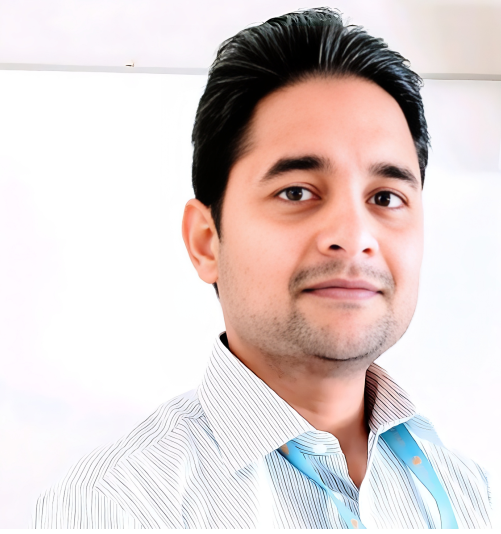Structural Engineering (STE)
Structural engineering (STE) has always been seen as one of the few professions where one can combine real technical skills with artistic flair. Structural engineers are known to be people who enjoy innovation, opportunities, responsibility, and excitement, whilst working within a creative profession. Structural engineers plan and design various structures such as buildings, bridges, dams, sports stadiums, towers, and underground structures.
As they create the built environment, they have an enormous impact on our everyday lives. In order to design and construct safe and economic structures, they need to keep abreast with the latest methods of structural analysis, modeling concepts for computation, advanced design, material technology, and improved knowledge of structural loadings.
The field educates professionals who will be at the forefront of advanced research in Structural Engineering. They are trained to respond creatively to the industrial requirements of infrastructure development.

Areas of Specialization
STE offers two areas of specialization, (a) Structural Analysis, Mechanics, and Computation, and (b) Structural Design and Materials.
The availability of inexpensive computer technology allows structural engineers to equip themselves with advanced structural theories to improve the quality of their professional work and achieve global competencies. This is the core of studies in the area of Structural Analysis, Mechanics, and Computation. Researches in the area include the analysis of complex and nonlinear structures, finite element methods, computational and applied mechanics, structural dynamics and vibration control, wind and earthquake engineering, computer-aided design, and expert systems.
Structural Design and Materials prepare students for a career in structural engineering in its broadest sense. Depending upon individual choice and interest, students may select courses such that they receive training in a specific area of their choice. Researches in the area cover advanced and low-cost construction materials, analytical and experimental methods for concrete technology, reinforced and prestressed concrete structures, and steel structures, earthquake and wind-resistant design of structures, building and bridge engineering, and fire protection technology.
Research Focus Area
- Structural analysis
- Mechanics and Computation
- Structural design and materials
- Structural analysis, mechanics, and computation
- Structural dynamics and vibration control
- Finite element methods
- Computational and applied mechanics
- Wind and earthquake engineering
- Computer-aided design and expert systems
- Reinforced and prestressed concrete structures
- Steel structures
- Earthquake and wind-resistant design
- Bridge engineering
Preferred Background
- Master Program
- Undergraduate degrees in Civil Engineering; mechanical engineering and architectural engineering will be considered on a case-to-case basis
- Doctoral Program
- Master’s degree in Structural Engineering
Course Structure
STE delivers three types of courses: basic, advanced, and interdisciplinary. Basic courses focus on the specific aspects of structural systems. They are offered in five areas –
(a) Analysis and Computations (CE72.1x)
(b) Dynamics of Structures (CE72.2x)
(c) Mechanics of Structures (CE72.3x)
(d) Material Technology (CE72.4x)
(e) Structural Design (CE72.5x).
While advanced and interdisciplinary courses (CE72.6x) address new frontiers or the integration of skills in a holistic manner and are designed specifically for doctoral or advanced master’s students. Advanced courses provide emerging concepts and techniques in Structural Engineering.
In offering opportunity and choice, students can design their own study programs according to their inclinations and future career objectives. In addition to the courses specified below, students, under the guidance of their academic advisors, can select courses from a wide range of electives from other fields/schools as part of an approved study plan.
| August | First Semester | Choice | Credits |
|---|---|---|---|
| CE72.11 | Computer Methods of Structural Analysis | Elective | 3 |
| CE72.21 | Structural Dynamics | Elective | 3 |
| CE72.31 | Continuum Mechanics | Elective | 3 |
| CE72.41 | Advanced Concrete Technology | Elective | 3 |
| January | Second Semester | Choice | Credits |
|---|---|---|---|
| CE72.12 | Finite Element Methods in Engineering | Elective | 3 |
| CE72.22 | Wind and Earthquake Engineering | Elective | 3 |
| CE72.32 | Tall Buildings | Elective | 3 |
| CE72.42 | Experimental Methods in Structural Engineering | Elective | 3 |
| CE72.51 | Advanced Steel Structures | Elective | 3 |
| CE72.52 | Advanced Concrete Structures | Elective | 3 |
| CE72.62 | Forensic Engineering, Structural Evaluation and Retrofitting of Structures | Elective | 3 |
| CE72.90 | Advanced Topics in Bridge Engineering | Elective | 3 |
| CE72.9005 | Selected Topic: Concrete Repair and Maintenance | Elective | 3 |
| CE72.9007 | Selected Topic: Advanced Topics in Design of Tall Buildings and Bridges | Elective | 3 |
| Inter Semester | Choice | Credits | |
|---|---|---|---|
| CE72.9006 | Selected Topic: Advanced Topics in Earthquake Engineering | Elective | 2 |
| Institute-wide course/English or Computer-based course | Elective | 2 |
| August | Third Semester | Choice | Credits |
|---|---|---|---|
| Thesis Option | Thesis proposal preparation/defense and data/information collection | Elective | 22 |
| Research Option | Research Study plus Coursework (continued) | Elective | 12 |
| January | Fourth Semester | Choice | Credits |
|---|---|---|---|
| Thesis Option | Thesis proposal preparation/defense and data/information collection | – | – |
| Research Option | Research study preparation and final research report defense | Elective | 1 |
Concerned Faculty
Staff
Contact Us
Chanya Chaiyanont
Structural Engineering (STE)
Department of CIE
Phone: +66 (0)2 524 6052









